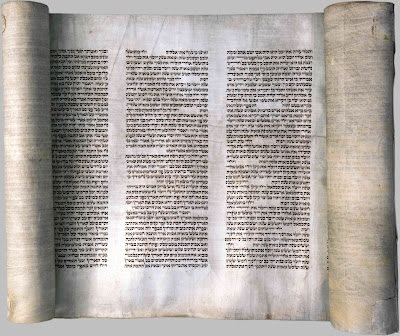 |
| Mark the Evangelist by Il Pordenone |
We can get a lot of information about Saint Mark simply by reading the gospels and the Acts of the Apostles.
The thing I'm most interested in is that the gospel he wrote actually comes from having been St. Peter's interpreter and going on the road with him. The people asked him to record St. Peter's teachings. No wonder there are such vivid details in it. This is as close as you can get to being straight from the horse's mouth.
.. we find Mark in Rome, this time helping Peter, who refers to him as my son Mark, thereby testifying to a long-standing close relationship. At that time Mark was acting as interpreter for the Prince of the Apostles, and this provided him with a privileged vantage-point which we see reflected in the Gospel he wrote a few years later. Although Saint Mark doesn't provide us with a record of the Master's great discourses, he makes up for it by giving us a particularly vivid description of the events of Jesus' life with his disciples. In his accounts we find ourselves once more in those little towns on the shores of the Sea of Galilee; we can sense the hubbub of the crowds of that follow Jesus, we can almost converse iwth the inhabitants of those places and can contemplate Christ's wonderful deeds and the spontaneous reactions of the Twelve. In a word, we find ourselves witnessing the events of the gospel as if we were actually there in the throng. Though his vivid descriptions the Evangelist manages to imprint on our souls something of the irresistible yet reassuring fascination that Jesus exercised on people, and which the Apostles themselves experienced in their life with the Master. Saint Mark in effect gives us a faithful account of Saint Peter's most intimate recollections of his Master: with the passage of the years his memories had not grown dim, but became ever more profound and perceptive, more penetrating and more fond. It can be said that Mark's message is the living mirror of Saint Peter's preaching.Saint Jerome tells us that Mark, the disciple and interpreter of Peter, wrote down his gospel at the request of the brethren living in Rome, according to what he had heard Peter preach. And Peter himself, having heard it, approved it with his authority to be read in the Church. This was without doubt Mark's principal mission in life — to transmit Peter's teachings faithfully.
In Conversation with God, Francis Fernandez,
Special Feasts: January - June








